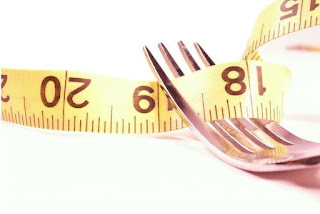Weight loss is an immensely popular topic in our society. Everyone is looking for a quick-fix or simply for some clarity on what truly works. Unfortunately, there are a lot of myths out there, as well as an industry which is profit-driven and not necessarily concerned with your health (or even with your weight loss). Fortunately, there are many scientific studies on nutrition and healthy habits which can guide us towards achieving our weight loss goals. Just recently, a new study was published in the Journal of the Academy of Nutrition and Dietetics. It examined the contribution of several diet-related and self-monitoring behaviours on weight loss in an adult female population.
This study has provided us with 3 scientifically validated ways to achieve weight loss. These are tips and tools that we can all benefit from:
- Keep a food journal. When the study subjects consistently used a food journal, noting what they ate, when and in what quantity, they lost significantly more weight. The likely explanation for the weight loss is that keeping a journal requires you to become more conscious and aware of your dietary choices. When you have to write down everything you eat, it may prompt you to be a bit more disciplined. If you use this tool over time, you may find that such choices become ingrained and natural, as you adopt a healthier diet. Although this tool requires discipline, it is easy enough for anyone to use - at any point in their life. It doesn't even overtly require you to change your diet (simply write down what you eat), although you will likely find yourself doing so anyway!
- Never skip a meal. The study found that subjects who skipped meals ended up losing less weight than those who consistently ate at regular mealtimes. This one might seem counter-intuitive, since wouldn't skipping a meal result in less calories ingested? In fact, what is likely to occur is that people who skip meals over-indulge later on, since they are overcome with hunger. They may then eat bigger portions, indulge in more snacks, or make food choices that they normally wouldn't have made. In our daily life, we try to eat consistently, using snacks when required (e.g. pre-workout) and we incorporate a source of protein into every meal.
- Avoid eating out. The study also found that subjects who ate out at least once a week ended up losing less weight than those who avoided eating out. When you eat out at a restaurant, you relinquish some control over your food choices and how that food is prepared. Although a lot of restaurants do have healthy options, most people end up choosing what appeals to them, taking in more calories than they normally would. Eating out at lunch was especially associated with poor weight loss outcomes. Life gets busy and it can be hard to plan ahead and pack a healthy lunch. Similarly, it's tempting when you get home from a busy day to want to go out for a meal - let someone else do the cooking! However, the trade-off for that convenience is the extra calories. Your wallet will end up lighter and you'll be heavier overall from the experience.
There are many different healthy behaviours and nutritional choices that you can make each day. This is certainly not an exhaustive or definitive list. However, it is a good starting point if you're aiming to lose weight and willing to make changes to your diet and approach to eating. If anything, your weight loss success will likely be attributed more to your dietary choices/behaviours than to your exercise routine. Diet makes up the vast majority of body composition changes in most people. Your nutritional choices will lead you to a life of being lean or large... The exercise is the icing on the cake, allowing for a more complete body transformation as you build muscle and become more athletic.
Give these tips a try and let us know how they work for you!
- Tannys & Alex




No comments:
Post a Comment